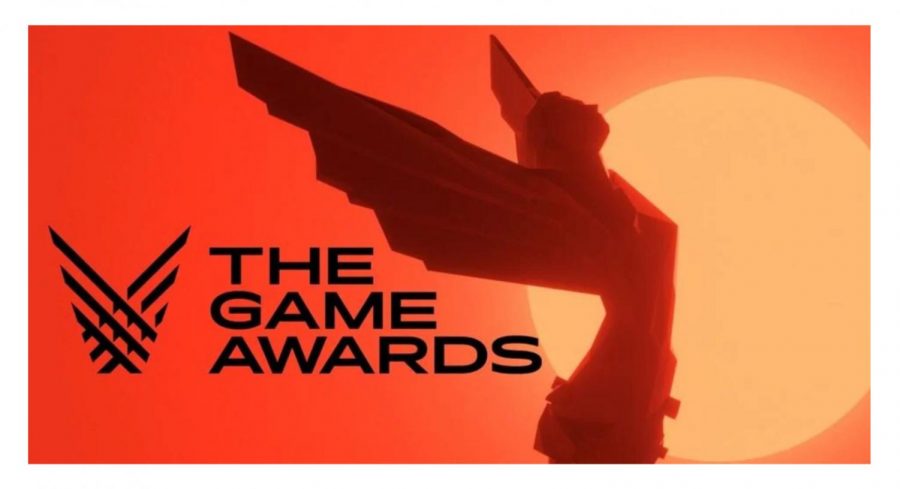The Game Awards 2020: It’s E3 in December
December 19, 2020
The Game Awards returned on Thursday, December 10 for its sixth annual celebration of the video game industry. While last year’s show left many criticizing its long ads, monotonous flow, and weak announcements, host Geoff Keighley and his team clearly aimed to address these concerns with this 2020 rendition. So, how’d they do? Here’s everything you need to know about The Game Awards.
The Awards
This year, many different titles took home awards in over 30 different categories. Here are some of the highlights:
Game of the Year – The Last of Us Part II (Naughty Dog)
Best Game Direction – The Last of Us Part II (Naughty Dog)
Best Art Direction – Ghosts of Tsushima (Sucker Punch)
Best Score and Music – Final Fantasy VII Remake (Square Enix)
Games for Impact [Recognizing a game that addressed an issue in society] – Tell Me Why (Dontnod Entertainment)
Best Indie Game – Hades (Supergiant Games)
Best Mobile Game – Among Us (Innersloth)
Innovation in Accessibility [Recognizing a game that adds new features to allow more gamers to play] – The Last of Us Part II (Naughty Dog)
Best Action Game – Hades (Supergiant Games)
Best Role-Palying Game – Final Fantasy VII Remake (Square Enix)
Best Family Game – Animal Crossing: New Horizons (Nintendo)
Best Multiplayer – Among Us (Innersloth)
Best Debut Game [Recognizing a studio that released its first game in 2020] – Phasmophobia (Kinetic Games)
The big winner of the Game Awards this year was clearly Naughty Dog’s The Last of Us Part II. The title received six major awards in addition to Game of the Year.
You can see a full list of the winners here: https://thegameawards.com/nominees
The Show
As always, the Game Awards brought fans a look at the future of gaming with a slew of world premiere announcements from developers across the industry. Nintendo started off the show with a major surprise, revealing that iconic Final Fantasy VII villain Sephiroth will be joining Super Smash Bros. Ultimate as the game’s eighth DLC fighter.
Other studios continued to unveil major announcements throughout the night. Back4Blood, a successor to the massively popular zombie survival game Left4Dead, was revealed for a June 2021 release by Turtle Rock Studios. In addition, Fortnite announced a Halo crossover, and Bioware teased both a new Dragon Age and a new Mass Effect. In one of the biggest premieres of the night, Xbox Game Studio The Initiative revealed that their team is reviving Perfect Dark, a dormant classic franchise originally developed by Rare.
Beyond new announcements, the Game Awards 2020 also featured a selection of excellent music. The show teamed up with The Persona Music Band and the London Philharmonic Orchestra to bring viewers prerecorded renditions of Persona 5’s Last Surprise, a Super Mario Bros. 35th Anniversary Medley, and the annual Game of the Year Medley. In addition, Pearl Jam’s Eddie Vedder performed Future Days, a song well-known by players of The Last of Us Part II.
Similar to last year, many celebrity special guests appeared in the show as presenters and announcers. This time, the Game Awards featured Tom Holland, Brie Larson, Christopher Nolan, Keanu Reeves, Gal Godot, Stephen A. Smith, the Muppets’ Swedish Chef and many more.
Overall, the pacing of The Game Awards 2020 was excellent. Whereas many people criticized last year’s show as boring, there were many more interesting world premieres, developer videos, celebrity appearances, and music performances to keep audiences constantly engaged. This year, so much was packed into the evening that at times, it felt like Geoff Keighley rushed things along purely because he had to fit everything in before the end of the show. In reality, this was a good problem to have as the Game Awards felt really exciting this year. Viewers never knew what was coming next, and there were few dull moments in the entire broadcast.
The Good
The Game Awards team made a number of great decisions going into this year’s show. Due to the pandemic, the awards were completely virtual for the first time. While that meant the show could not have a live orchestra or audience, Geoff Keighley and his crew worked to make the absolute best of the situation. The use of Zoom and prerecorded video meant that many overseas developers who usually cannot be in-person at the awards were able to make acceptance speeches and reveal new trailers. Live music was recorded in advance. In addition, The Game Awards teamed up with Twitch, YouTube, and more platforms to broadcast the show to millions of gamers in many countries around the world. More than ever before, everyone was able to watch.
The team also clearly listened to complaints about last year’s show. While long, repetitive advertisements ruled The Game Awards in 2019, this year, fewer commercial breaks were taken. In addition, many ads were cleverly disguised as reveals for new DLC or shadow-drop titles. In some cases, this year’s ads were even entertaining. This overhaul of the Game Awards’ advertisement protocol really helped the flow of the evening, and it represents a major improvement over 2019.
The Bad
While The Game Awards made some great advances this year, the show also did not fix its worst problem. In a packed night of world premieres, live music, and celebrity appearances, the actual awards themselves once again took a back seat. The “lightning-round” approach returned this year, and at times, five awards were given in two minutes or less. Considering it is an “awards” show, The Game Awards really struggled to give most of its presentations pomp and circumstance, and the lightning-round style does not help. In fact, it arguably detracts from the accomplishments of the winners.
The Future
In all, The Game Awards 2020 was an entertaining evening celebrating the video game industry, but in the end, it felt more like an E3 conference than an awards show. The world premieres were exciting, the music was excellent, and the entire world was able to watch thanks to online platforms in many different countries. However, the awards part of the The Game Awards felt lacking once again. In the coming years, the show should continue to host many world premieres, but more time should be dedicated to recognizing the winners of each awarded category. That way, viewers can have the chance to not only look forward to the future of gaming, but also to look back and celebrate how far the industry has come.


